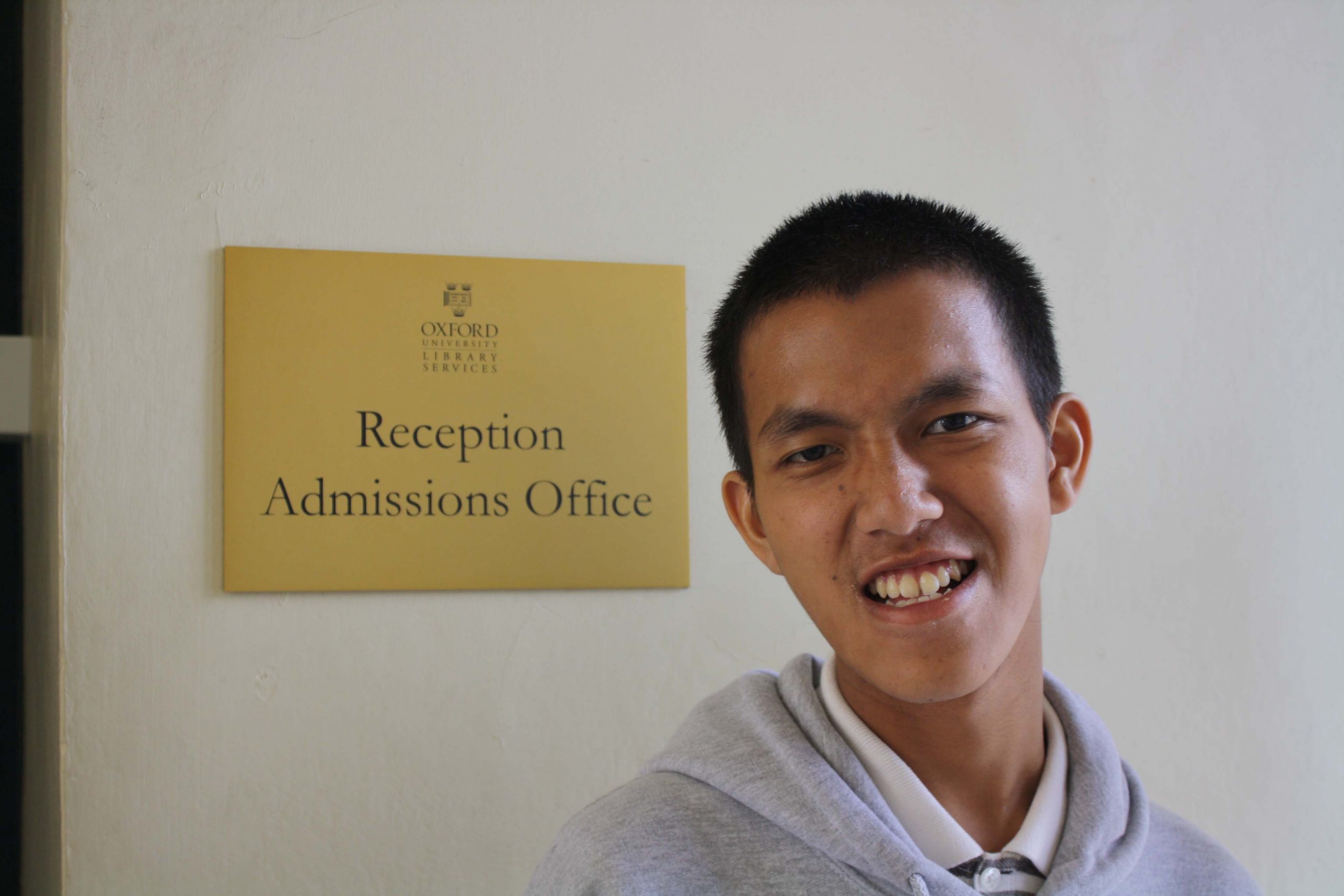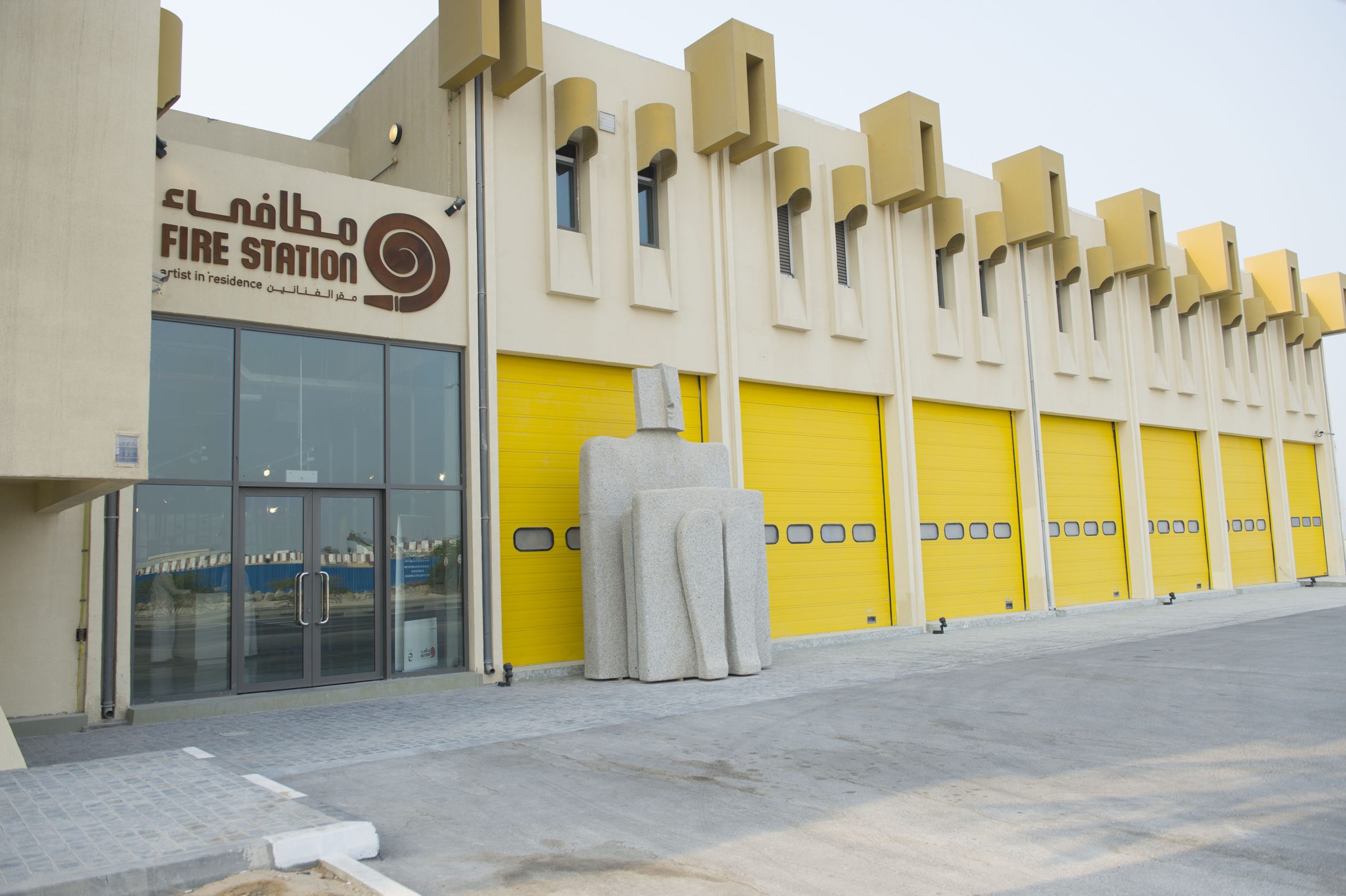
Muhammed Zulfikar Rakhmat, a 21-year-old Indonesian student who recently graduated from Qatar University, is no stranger to adversity.
The expat was born with a severe movement disorder in both his arms, which makes it difficult for him to use his hands for soft-motor movements like writing and picking up items. The condition also causes him to stammer, making his pronunciation unclear.
Though the disability put his future in doubt for many years, Rakhmat said his family’s decision to move to Qatar, where schools were accommodating of his disorder, has changed his life.

Rakhmat’s story recently struck a chord with several college students here after his graduation picture (which entailed meeting the Emir) was published on the Facebook page Humans of Qatar University, a picture that received more than 700 likes and 68 comments.
The expat graduated from QU with a Bachelor’s degree in International Affairs.
His 3.93 grade point average helped him obtain a full scholarship, and he finished school in three and a half years instead of four.
In an email interview with Doha News, Rakhmat said he felt honored and motivated by the support and positive feedback he received for that photo.
He was frank about his condition, but said he did not let it slow him down:
“It has been difficult because hands are important parts of our body. Without them functioning properly, there are many activities that I cannot do or at least I have to do them in different ways than other people. Whenever I feel down, I just turn to the Qur’an where it says that ‘God will never give you burdens more than what you can bear.’”
He also shared stories about his past, his fight to educate others about people with disabilities and plans for the future.
Growing up
Over the past two decades, Rakhmat said he and his family have overcome an endless list of everyday struggles, including bullying by peers, school rejections, lack of access to public facilities and educating society on disability.
When Rakhmat began kindergarten, he said he realized he was different from the other kids because it would take a lot of time for him to complete certain tasks. His parents initially evaded his questions about his condition, but told him what he was facing later on (his doctor said the disorder doesn’t have a name).
School life was never easy for young Rakhmat. It was here that he remembers experiencing intense bullying from other students in and elementary school.
“There were times when school scared me,” Rakhmat told Doha News. “Nevertheless, my parents always told me that staying away from school means letting my disability wins. I always tried to attend school despite all the bullying and I believe this has made me a stronger individual.”
He added that another form of bullying that he experiences to this day is when people question his ability to achieve his dreams.
Growing up as the eldest in a family of five – including his doctor father, housewife mother and younger sister and brother in a small village in Indonesia – Rakhmat recalled how people would advise his parents to send him to a special needs school.
However, his parents refused, and the greatest struggle for him was to gain admission into a public school in Indonesia, because these institutions were not equipped to handle disabled children. He said:
“In order for students like myself to be accepted into regular schools, pressures must be applied to schools to provide suitable facilities… Many of these schools assumed that because of my physical disability I might also have impaired intelligence.”
Rakhmat said he had to undertake a series of special tests to prove he was academically capable to study with his non-disabled peers. After several months, he finally got placed in a prestigious Islamic school.
But in planning for the future, Rakhmat said he had to think carefully about what universities to apply to, not just taking into account a school’s reputation or rankings, but whether it could accommodate his disability.
Qatar years
The struggle to find an accepting school continued when his family shifted to Qatar in 2007, until Cambridge School Doha welcomed him to complete his IGCSE and A levels.
Later, Rakhmat obtained a full academic scholarship to QU. He said that the best times as a student took place at the university, thanks to the accommodating teachers and helpful friends he came across.
“To be honest, Qatar University was the most exciting and happiest moment in my academic life,” he recalled, adding that teachers and the special needs section worked with him to ensure he was allowed to use a laptop or provided a writer to help him with handwriting.
His peers, knowing that getting around was a problem, often offered him rides to school, he added.

While Rakhmat said his friends motivate him to move ahead in life, meeting new people has always been a challenge.
“Sometimes I have negative experiences especially when I meet new people who have no idea that I have disability. Some of them looked at me in a strange way, some of them looked down upon me, and some of them laugh.”
But the expat also gives his disability credit for being his toughest teacher, because coping with it has taught him to not give up on his dreams.
Additionally, Rakhmat’s inability to write has made him tech-savvy and improve his computer skills. The fact that he can’t drive or use any mode of transportation easily has spurred him to spend more time reading and learning new things, thereby expanding his knowledge on different subjects, ranging from politics to religion.
Rakhmat also said that he owed his parents for helping him convert his weaknesses into strengths:
“My parents have taught me how to deal with struggles, overcome obstacles, and have inspired me to reach the highest goals through dedication, hard work, and a positive attitude. When I was a little, my father used to tell me ‘Do not let your disability win.’ This has been the motto that I follow in my life.”
Changing society’s perception
While speaking to Doha News, Rakhmat remembered how he would be treated like a little kid by shopkeepers who refused to serve him on many occasions and other instances where taxi drivers would decline to take him home, thinking he had a mental problem.
“Society needs to change their perception towards disabled people. Even today, people continue to perpetuate the idea that the disabled are less intelligent, less able and thus incapable of becoming functioning members of society. These people are denied their rights, their equal opportunities and are often separated from mainstream society.”
He added that he feels disability still remains a taboo subject within many cultures. However, Rakhmat said that in some societies, the perceptions are slowly beginning to shift.
Zulfikar said he also feels that disabled people should not sit around feeling sorry for themselves, but instead take steps to prove the perceptions wrong and most importantly educate society.
“Many people with disabilities, including myself before, did nothing, and sometimes get angry. But what we actually have to do is to be calm, and let them know our condition and what help we need. By voicing our conditions and our needs, the society will become more aware of our existence and hopefully ready to accommodate the differences.”
Future plans
Rakhmat currently remains in Qatar, conducting research for an organization in Indonesia that focuses on disabled people in Palestine.

But he will soon head to the UK to work toward a Master’s degree in International Politics at the University of Manchester. This will be the first time he lives independently, and said he anticipates a “challenging and exciting experience.”
His ultimate ambition is to become a professor and a researcher, and he hopes to pursue a Ph.D after his Master’s.
He also hopes to become a voice for many disabled people out there who are ignored by society and as a conclusion said, “Physical disability is not really a disability – the real disability is giving up easily.”
Thoughts?







